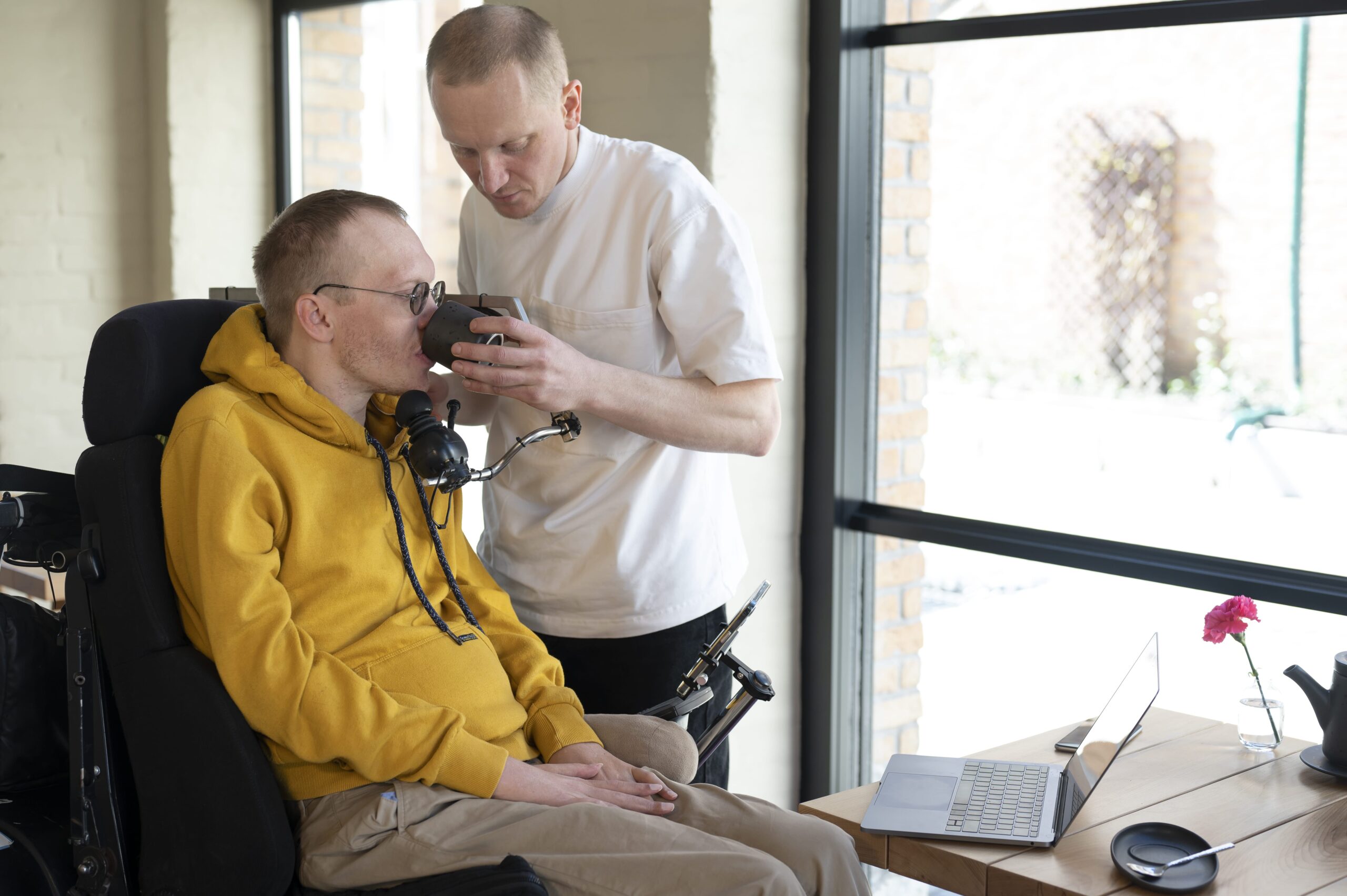Imagine waking up one day to find that your loved one’s memories are slowly fading away. For thousands of families in Sydney, this isn’t just a hypothetical scenario—it’s a daily reality. Dementia affects over 400,000 Australians, with nearly 100,000 living in New South Wales alone. By 2058, this number is projected to soar to 812,500 nationwide.
But here’s the silver lining: Sydney is at the forefront of dementia care, with lots of resources and support available. Did you know that 70% of people with dementia live in the community, with many receiving care at home?
In this guide, we’ll explore everything about nursing care plans in Sydney, from innovative care strategies to common pitfalls to avoid.
Why is a Nursing Care Plan Important for Dementia Patients?
Dementia is a disease that seriously impacts a person’s ability to carry out daily tasks. The risk increases with age and usually begins after 60. Family members at higher risk are also at greater risk.
A well-structured nursing care plan for dementia patients serves as a roadmap for managing symptoms, ensuring safety, and promoting overall well-being. These plans are essential because they provide a systematic approach to addressing the multifaceted needs of dementia patients.
Each dementia care plan is a personalised guide that is adapted to individual patient needs. It helps caregivers navigate the unpredictable nature of dementia, focusing on easing symptoms like cognitive impairment and confusion.
They ensure consistency in care across different healthcare providers and allow for personalised interventions tailored to each patient’s unique situation. Furthermore, these plans facilitate communication among healthcare team members, patients, and their families while also helping to track progress and adjust care strategies as the disease progresses.
What are the three golden rules of dementia?
The three golden rules of dementia care are essential principles to ensure effective and compassionate support for individuals with dementia. They are:
- Don’t Ask Direct Questions
- Listen to the Person and Learn from Them
- Don’t Contradict
Looking for professional in-home dementia care in Sydney? Contact us today to learn how our personalised nursing care plans can help your loved one live comfortably at home.
Types of Nursing Care Plans
Standardised Care Plans
Standardised care plans are generic templates designed for common conditions like dementia. They offer several benefits, including ensuring a baseline level of care across different healthcare settings and providing a starting point for developing more individualised plans.
These plans can be beneficial for less experienced nurses, as they offer guidance for delivering consistent care. However, it’s important to remember that standardised plans should be used as a foundation and adapted to meet individual patient needs.
Individualised Care Plans
Individualised care plans are tailored to the specific needs of each individual with dementia. These plans consider the patient’s medical history, personal preferences, and stage of dementia. It also helps address specific challenges, such as managing agitation, ensuring safety, and maintaining independence for as long as possible.
They incorporate input from the patient (when possible), family members, and various healthcare providers, allowing for greater flexibility and regular updates as the patient’s condition changes.
Individualised care plans are essential for providing person-centred care, which is particularly important for dementia patients whose needs can vary greatly.
Why do dementia patients require individualised nursing care plans?
Elderly patients with dementia require individualised care plans because the progression and symptoms of dementia can vary widely from person to person. An individualised care plan considers the unique needs, preferences, and abilities of each patient, ensuring that they receive the most appropriate and effective care.
Also Read: What are the 3 main types of aged care services in Australia?
Nursing Care Plans and Management
Nursing Problem Priorities
When caring for patients with dementia, nurses must prioritise various problems and interventions to ensure the most effective care. The following are key priorities that should be addressed in nursing care plans for dementia patients:
- Safety: Preventing falls, wandering, and other accidents is a top priority. This includes creating a safe environment, using assistive devices, and implementing safety protocols.
- Cognitive Function: Maintaining and supporting cognitive abilities through engaging activities, memory exercises, and proper medication management is crucial.
- Behavioural Symptoms: Addressing and managing challenging behaviours such as agitation, aggression, or sundowning syndrome is essential for patient well-being and caregiver support.
- Activities of Daily Living (ADLs): Assisting with and promoting independence in ADLs like bathing, dressing, and eating is essential for maintaining dignity and functional abilities.
- Nutrition and Hydration: Ensuring adequate nutrition and hydration, which can be challenging due to cognitive decline and potential swallowing difficulties.
- Communication: Maintain effective communication with the patient, adapt strategies as cognitive function declines, and facilitate communication with family members.
- Pain Management: Assessing and managing pain, which can be challenging to identify in patients with advanced dementia.
- Skin Integrity: Preventing pressure ulcers and maintaining skin health, especially in patients with limited mobility.
- Continence: Managing urinary and faecal incontinence, which is common in advanced stages of dementia.
- Psychosocial Needs: Addressing emotional needs, preventing social isolation, and promoting a sense of purpose and engagement.
How should a nurse care for a dementia patient?
A nurse should provide person-centred care for dementia patients, focusing on maintaining dignity and maximising independence. This involves creating a safe environment, establishing routines, using clear communication, and addressing both physical and emotional needs. Regular assessments and adjustments to the care plan are crucial as the patient’s condition evolves.
Nursing Assessment for Dementia
Cardiac Function
Assessing cardiac function is very important in dementia patients, as cardiovascular issues can exacerbate cognition decline and impact overall health. This assessment includes:
- Monitoring blood pressure and heart rate
- Checking for oedema, particularly in the extremities
- Assessing circulation and capillary refill
- Listening for irregular heartbeats or murmurs
- Reviewing the patient’s history of cardiovascular diseases
- Evaluating the impact of any cardiac medications on cognitive function
Respiratory function
Respiratory health is vital for overall well-being and can significantly impact a dementia patient’s quality of life. The respiratory assessment should include:
- Observing respiratory rate, depth, and pattern
- Listening to breath sounds for any abnormalities
- Checking oxygen saturation levels
- Assessing for signs of respiratory distress or infection
- Evaluating the patient’s ability to clear secretions
- Reviewing any history of respiratory conditions like COPD or sleep apnea
Neurological & Sensory Functions
Given the nature of dementia, a thorough neurological and sensory assessment is critical. This should cover:
- Evaluating level of consciousness and alertness
- Assessing pupillary responses and eye movement
- Checking for facial symmetry and muscle strength
- Testing sensory responses, including touch, pain, and temperature sensitivity
- Evaluating balance and coordination
- Assessing for any signs of seizure activity
- Checking hearing and vision, as sensory impairments can impact cognitive function and behaviour
Labs
Laboratory tests can provide valuable information about a dementia patient’s overall health status and help identify any underlying conditions that may be contributing to cognitive decline. Important lab work may include:
- Complete Blood Count (CBC) to check for anaemia or infection
- Comprehensive Metabolic Panel (CMP) to assess kidney and liver function
- Thyroid function tests, as thyroid disorders can mimic or exacerbate dementia symptoms
- Vitamin B12 and folate levels, as deficiencies can impact cognitive function
- Urinalysis to check for urinary tract infections, which can confuse older adults
- Medication levels, particularly for patients on drugs like digoxin or anti-epileptics
- Specific dementia-related tests, such as amyloid PET scans or cerebrospinal fluid analysis, if clinically indicated
Struggling with dementia care at home? Call us today to explore our specialised in-home care services across Australia.
Nursing Interventions for Dementia
Once the groundwork is laid, the focus shifts to nursing interventions. These actions are designed to provide private care services to patients in various facets of life and effectively manage the symptoms of dementia.
Communication Strategies
Communication can be challenging with dementia patients, as cognitive decline often affects comprehension and expression. Simple, explicit language and nonverbal cues can help make communication more effective.
Engaging the patient with eye contact and using a calm tone contributes to a more comforting interaction. Learn more about effective communication for dementia care at Wise Choice.
Creating a Safe Environment
Safety becomes paramount when caring for dementia patients. Modifications to the living space, such as removing tripping hazards and ensuring adequate lighting, can reduce confusion and accidents. Creating a structured routine also adds to a sense of security and predictability in their environment.
Promoting Daily Tasks
Encouraging participation in daily tasks is vital in fostering independence and keeping the mind engaged. Tailoring activities to match the patient’s interests and abilities can help stimulate cognitive functions and enhance mood. Supporting simple tasks like dressing can make a world of difference.
How does dementia affect daily living activities?
Dementia can significantly impact a person’s ability to perform daily activities. As the disease progresses, individuals may struggle with tasks such as dressing, bathing, eating, and managing household chores. Memory loss, confusion, and difficulty with problem-solving can make even simple tasks challenging. This decline in cognitive function requires caregivers to provide more assistance and adapt daily routines to meet the evolving needs of the person with dementia.
Read More: Top 10 very early signs of dementia
Top 5 Mistakes To Avoid in Nursing Care Plans for dementia
The task of caring for someone with Dementia can be challenging. Those with an illness that is slowly stealing their lives away from them learn as they go and have no training to aid a person.
We may unintentionally exacerbate matters by not knowing what to do. You can avoid many of these dementia disease caregiver mistakes by recognising them.
1. Correcting them very often
In the mind of someone with dementia disease, events may seem correct even when they do not reflect reality at all, or an idea may seem true even when it cannot be confirmed.
Ultimately, this will confuse or anger you because you don’t believe them, which will cause you both to become frustrated and upset. Try to deal with the situation by agreeing and changing the topic when necessary.
If they say something wrong, you shouldn’t contradict them or correct them so they will save their face. It makes no sense to do so. Those who realise that they made a mistake will feel bad about it. Correcting them may embarrass or make them uncomfortable, even if they don’t understand their error.
2. Avoid arguing with the patients
When caring for someone with dementia, the patient may say some things that aren’t necessarily true now and then. They might refuse to go into care. The brain fills in the gaps that it can’t remember or is challenging to understand, producing inaccurate explanations.
Arguing with a person who has dementia is never a good idea. The person cannot win the argument. The other reason is that it will likely upset them.
3. Never make them feel ashamed
Shaming the patient will never bring a positive outcome. It’s never a good habit or a reaction.
If you know your loved one may be upset, there’s no point in bringing up the subject. Politics shouldn’t be discussed with someone you disagree with.
It could spark an argument that matches the second guideline. Your efforts will not succeed, and they will probably become enraged or frustrated.
Protect your loved one’s well-being with our trusted in-home dementia care in Sydney. Contact us now to create an individualised care plan tailored to their needs.
4. Keeping the past away
The things your father did as a young man or boy may stand out vividly even if they cannot recall the breakfast or the doctor’s words yesterday. You can ask them what they like to do, what subjects they enjoy in school, and about the people they met in their early years.
You can also listen to music from their early years. Reminiscences can reduce stress when things get tough.
People living with Dementia frequently believe that their spouse, parents or other loved ones are still alive. If the person does not visit, they may feel hurt or confused. The person might not believe you if you tell them the person is dead, and they might become furious.
If you are asked if the person has gone, you can ignore this rule if you don’t mind. It’s wise to answer the question honestly, even if the person will soon forget it and then move on to another subject.
5. Easing off the physical activity
Dementia disease can be a challenging disease to care for. Finding engaging indoor activities for dementia patients can help in improving their mood, stimulating their minds, and creating a sense of connection.
There is no training on how to help someone whose disease is slowly stealing their life away from them. Most of us learn on the job and have no idea how.
Consequently, knowing what to do can sometimes be confusing, and we may unintentionally complicate things for ourselves and our loved ones. Dementia disease caregivers should be aware of these mistakes to avoid making them.
Conclusion
Crafting effective nursing care plans for elderly patients with dementia is a complex but essential task. By understanding the importance of individualised care, avoiding common mistakes, and considering all aspects of patient well-being, Wise Choice can significantly improve the quality of life for those living with dementia in Sydney and beyond.
Remember that successful dementia care is an ongoing process that requires continuous learning, adaptation, and collaboration among healthcare professionals, patients, and their families.
If you found this blog helpful, please share it with others who may benefit from this information. Feel free to reach out to us with your thoughts and experiences for more insights into creating effective nursing care plans for dementia patients. Let’s work together to provide the best possible care for our ageing population.



